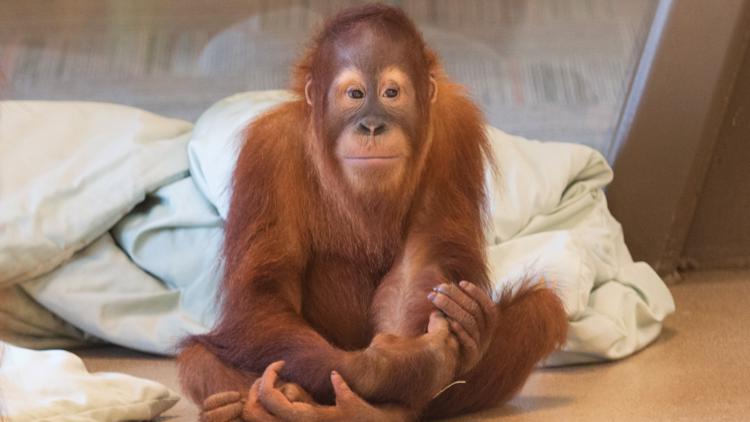INDIANAPOLIS — Researchers from Indiana University School of Medicine diagnosed a Sumatran orangutan at the Indianapolis Zoo with a rare genetic disease.
Mila, a 6-year-old orangutan who was born at the zoo in 2016, has alkaptonuria. According to researchers, this is the first time the disease has been confirmed molecularly in a primate other than a human.
Researchers said Mila had a history of dark urine that turned brown upon standing since birth, but she never showed other symptoms.
The IU School of Medicine provided the following description for the disease:
Alkaptonuria is a rare, autosomal recessive disorder caused by deficiency of an enzyme called homogentisate 1,2-dioxygenase. As an infant, the only symptom is urine that turns black upon standing. Symptoms typically progress slowly, but can lead to chronic joint pain and decreased mobility later in life.


The research team, which published its findings in "Molecular Genetics and Metabolism," collected and analyzed Mila's DNA, confirming the diagnosis of alkaptonuria.
"This was an unexpected finding that ended years of questions about this animal," said Marcus Miller, PhD, assistant professor of clinical medical and molecular genetics and principal investigator of the study. "We're proud of this collaborative effort with the zoo that will hopefully lead to better care and treatment of Mila moving forward."
The research team said it is unclear how the disease will impact Mila over time. However, the diagnosis means veterinarians won't have to worry about other potential issues.
"People with this disease typically don’t develop symptoms until much later in life, usually in their 30s or 40s," said Melissa Fayette, DVM, associate veterinarian for the Indianapolis Zoo. "We will continue to monitor Mila closely and perform regular preventive health exams to detect any secondary pathologies that may arise."


